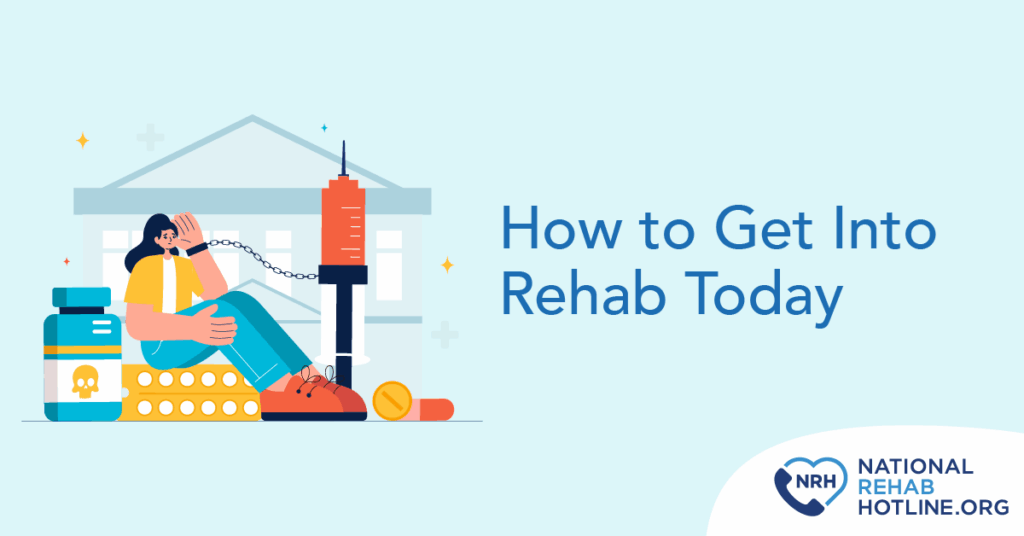When addiction takes hold, time matters. If local programs imply there’s a wait time before you can start treatment, it might be time to do a rehab self-check-in. You don’t need to have a court order or hit rock bottom before you seek treatment. As long as you have insurance, you can often walk in and start rehab in hours, not days or weeks. Don’t become part of the nearly 90% of those with a substance abuse problem who receive no treatment at all each year.
Whether you’re seeking help for yourself or trying to support someone close to you, this guide explains how to get into rehab quickly, what to expect and how to navigate the process.
Recognizing When Immediate Help Is Needed
Substance use disorders can spiral fast. For some, the warning signs are subtle, while for others, the fallout from addiction can include everything from employment problems to arrest warrants.
Here’s the truth: You don’t need to wait for a crisis. If you feel your use is no longer within your control or if someone you care about shows signs of addiction, seeking treatment immediately can prevent things from worsening. Around 20% of individuals undergoing alcohol withdrawal experience moderate-to-severe symptoms that require medical attention, so it’s important to seek help when attempting to stop your addiction.
Many people don’t realize you can check yourself into rehab, but there’s no need to wait. Call a rehab center today and you could start receiving treatment in a matter of hours.
Steps for Fast Rehab Self-Check-In
Most rehab centers have staff available 24-7 to take your call.
- Make the Call
Start by contacting a treatment center directly. If you don’t know where to begin, contact NRH — we’re here to help. - Complete a Phone Assessment
Answer questions about your substance use, health history and immediate needs. This helps determine if detox is needed and whether the facility is a good fit. - Discuss Availability
Many rehab centers can admit new clients the same day. If the facility has a waitlist, the staff may refer you to a partner facility or temporary program until a bed becomes available. In emergencies, hospitals can often coordinate admission to rehab once the individual is stabilized. - Arrange Transportation
If you can’t drive or don’t have someone to take you, let the facility know. Some centers provide transportation services or can coordinate a safe pickup.
What to Expect During the Admission Process
The moment you arrive, the focus shifts from crisis to healing. Upon intake, a licensed professional conducts a comprehensive evaluation that covers much of what you went over during your phone assessment. They also perform a physical exam and psychiatric assessment.
If medical detox is needed, you’re admitted to a detox unit for supervised withdrawal. Detox may last several days and often includes medications to ease discomfort and reduce withdrawal symptoms.
After any needed detox, you transition into the main treatment program. This may be residential, partial hospitalization or intensive outpatient.
Insurance, Payment and Other Logistics for Rehab Self-Check-In
One of the biggest misconceptions about rehab is that it’s too expensive. The truth is, most private insurance plans (including employer-sponsored ones) cover addiction treatment.
What about interventions for people who won’t admit they have a problem? Can you make someone go to rehab? While forcing treatment is possible in certain cases, voluntary self-check-in is usually more effective.
If you’re unsure what your insurance covers, don’t worry. When you contact a rehab facility, its admissions team can verify your benefits. The staff can explain your coverage and any out-of-pocket costs you may have.
Even in the absence of insurance coverage, many centers offer payment plans, sliding scale fees or access to public funding. The key is to avoid letting money be the reason you delay help.
Choosing the Right Rehab for Your Needs
Not all treatment centers are the same. Choosing the right one depends on a variety of factors, including:
- What substance you’re addicted to (alcohol, opioids, stimulants, etc.)
- Any co-occurring mental health disorders you may have
- Your physical health condition
- Program philosophy, such as 12-step, faith-based, holistic, trauma-informed
- Location
Some benefit from staying close to home, while others thrive in new environments focused solely on recovery.
Preparing for Your First Day
Once your admission is confirmed, it’s time to get ready. Here’s what to expect and some guidance on what to pack.
What to Bring
- Valid ID and insurance card
- List of current medications
- Comfortable, modest clothing (usually a week’s worth)
- Toiletries (non-alcohol-based)
- A journal, books or photos for comfort
What Not to Bring
- Weapons (including pocket knives)
- Products with alcohol content (e.g. mouthwash, cologne)
- Unapproved electronics (check with the facility)
Many rehab programs confiscate personal electronics for the first days or weeks in the program. Let your support network know about your plans and how long you expect to be gone. If you’re employed, look into FMLA protections or short-term disability, which may cover time away for medical treatment.
Take the First Step — Today
Recovery isn’t a future goal — it’s something you can begin right now. If you’ve been wondering how to go to rehab, now you know, and you can check yourself into rehab right now.
At NRH, we believe no one should wait for treatment. We’re ready to help you every step of the way, from the moment you make the call to the day you take your first steps toward a healthier, substance-free life.
Ready to Check in to a Better Future? Call the National Rehab Hotline Now
Every moment counts when you’re facing addiction, and help is only a phone call away. Call the National Rehab Hotline now to get help finding options for rehab self-check-in and navigating the process.

